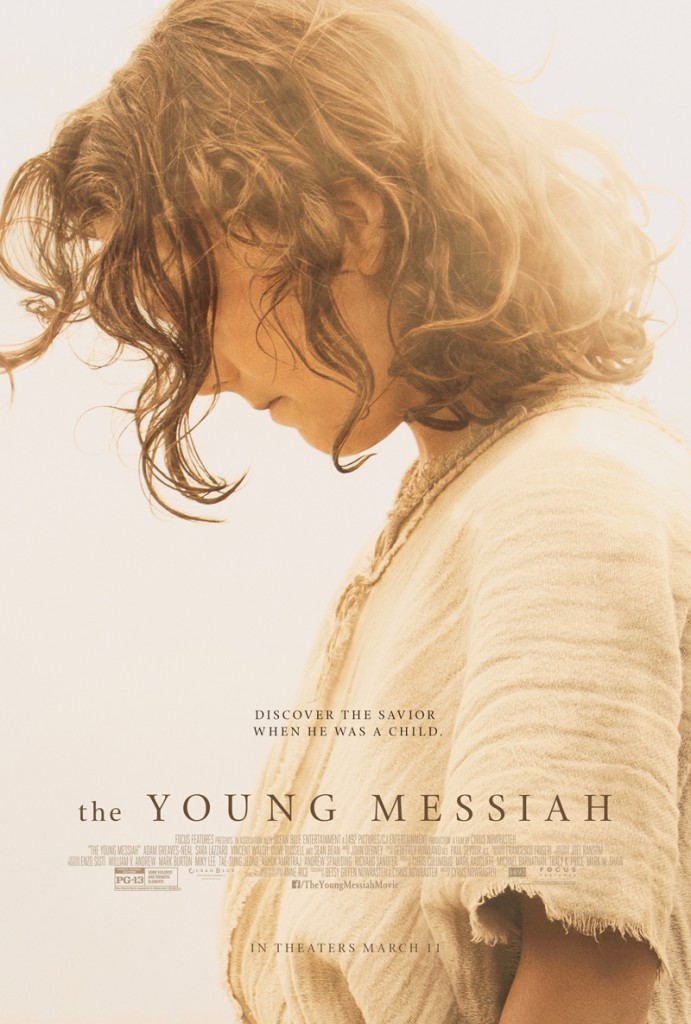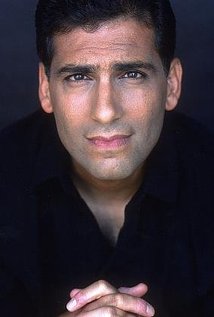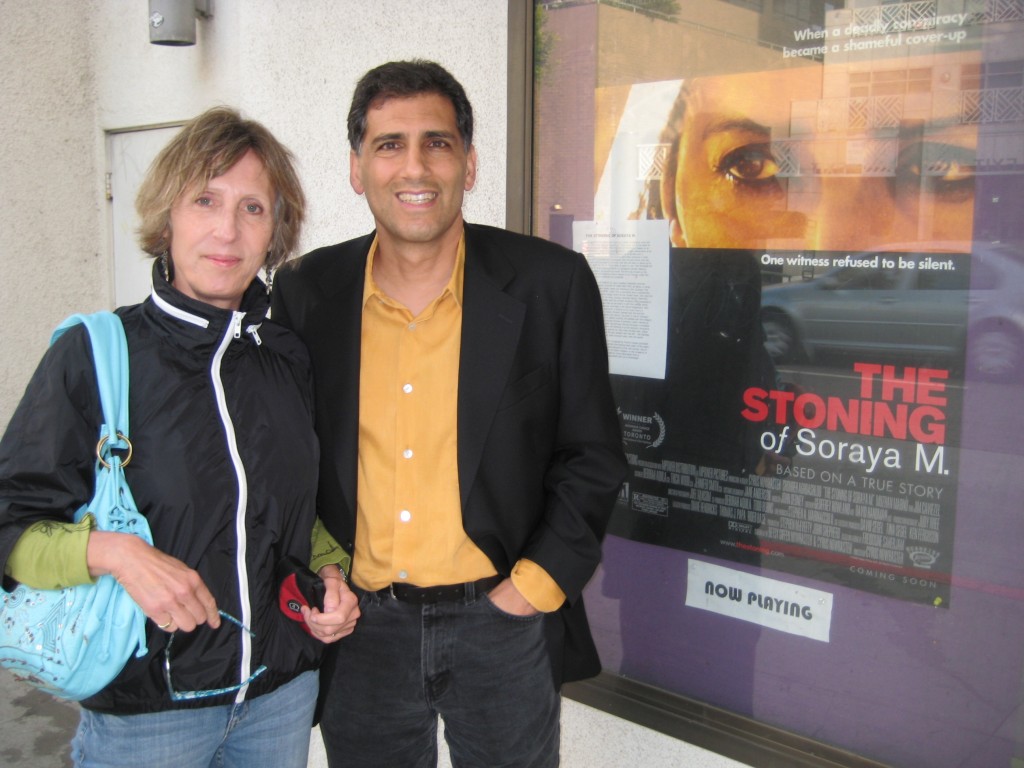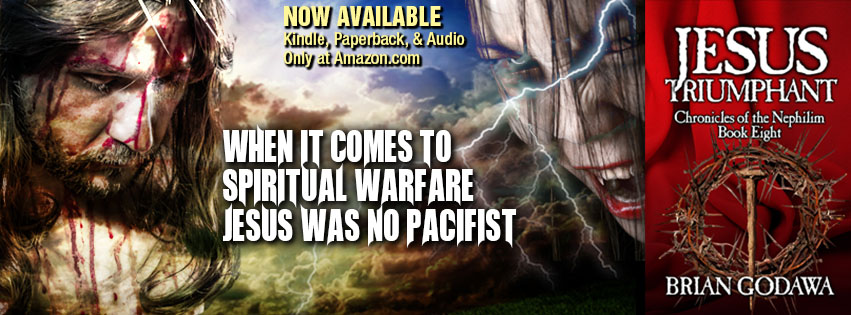
Okay, it wasn’t like a Damascus Road Zap, more of a culmination of a long journey ending in this movie.
I got to interview Cyrus Nowrasteh about the upcoming movie, The Young Messiah, that opens March 11. You HAVE to see this movie. It’s a thoughtful and dramatic exploration of Jesus and his human coming of age as the Son of God.
You can read my review of the movie here.
It opens next Friday, March 11.
Here is the interview…
Brian: Tell me about the Genesis of this project and its journey to the screen.
Cyrus: I remember having dinner in 2005 with my agent at CAA. He talked about his client Anne Rice coming out with a book called Christ the Lord, that is going to blow everyone’s mind, because at the time, she became born again, or whatever you want to call it. I thought it was a fresh and original take on Jesus, focusing on him entirely as a seven-year old child.
If you told me then, about 10 years ago, that I’d be making a movie from that book, I’d have told you you were on crack. For a slew of reasons. But [my movie] Stoning of Soraya M. came out in 2009. Anne Rice wrote a rave review of it. So I called the same agent. She thought I’d be perfect for it. I read it and fell in love with it. I contacted Chris Columbus’ 1492 Pictures. I worked with them in the past. They optioned the book, and developed the script with me attached to direct.
B: So it took over 10 years to get made. And that’s just the beginning of the miraculous things that would happen. What were the reasons that made you hesitate from making the movie at first?
C: First of all, she’s very prominent. She’s been writing best-sellers for over 40 years. She’s had movies made from her books. And her books are very expensive to acquire and get made. That was one reason. The other was what it was about. I had been on my own journey towards Christ for a long time, probably longer than I even know. But I certainly didn’t think I was prepared to tackle a project about Jesus, much less a very risky and challenging one, taking on a portion of his life that is considered the silent years. I knew that would be controversial.

Writer-Director Cyrus Nowrasteh
B: What unique issues did you face in adapting this book to a film?
C: She did a very challenging thing in the book. It was pretty gutsy. The entire book is written in the first person voice of Jesus. That was challenge number one. The other challenges were theological. Anne grew up Catholic. I didn’t know it at the time, that she used a lot of other sources. Some of them are apocryphal, and some of them are legends that come down about the childhood of Jesus in the vicinity of Alexandria going back 2000 years. The Coptic Christians still tell these stories about Jesus. She used everything and anything that she could find. And we felt, Betsy (wife and co-writer) and myself, that if we were going to write it, that we were going to have to reexamine those issues. We are not theologians or scholars. It was through multiple drafts, having friends and associates, theologians, people who we trusted, who came back with feedback. It took time for us to figure out how we could navigate those issues and still tell the story in a dramatic and compelling fashion.
[BG DISCLOSURE: I was one of those who read the script early on. To be honest, I knew Christians would not like it at that point in its development, because of some of the material they included. But as you read on, you’ll see how he and his wife co-writer changed it because of their spiritual journey. Good news! this movie is now totally Biblically consistent, even though it obviously takes creative license. I loved it.] Read on to see what happened…
B: Since the Bible itself doesn’t really say much about Jesus as a child, what would you want to say to those religious folks who might be afraid that you will be adding too much fiction to their sacred story?
C: We approached this with great caution, reverence and respect. One thing that we thought was very important in our portrayal of Jesus, of his character [in the movie], we wanted him to be consistent with Jesus as he is revealed in the Bible. We didn’t want him doing things that people would say, “he would never do that.” So we looked to his ministry, what we know about Jesus in the Bible, to try to guide us. We found that there was this cycle of repetition in the story where we seem to be foreshadowing things that happened later in his life. And we thought, well, there’s nothing wrong with that.
I talked to a lot of theologians. They don’t all agree. What I thought was, If we do this honestly, that will come across. If they see the movie, I hope that they will connect emotionally with the child Jesus, with the holy family on screen as people. They are embraced and charmed by these people. They care.
B: What is this movie all about to you?
C: This story is about God. It’s about faith, it’s about Jesus, young Jesus coming to terms with his identity as the Son of God, God in the flesh. About the generosity, the humility, the charity, the love of Jesus. We had to convey that through his character, and in convincing ways. Not ways in which we are pandering to the audience. For me, as someone who has come to Christianity late in life, the most distinctive thing about Christianity is the identity of Jesus as Savior and about his love, the concept of forgiveness. These are what faith should be about.

Cyrus and Betsy Nowrasteh, co-writers of The Young Messiah
B: You have said that making the movie had an impact on your own faith journey. Tell us about that.
C: My journey started when I got married. Betsy [my co-writer and wife] became a Christian before me, but she never pushed me. She prodded a little bit. I was never a practicing Muslim by any means, my parents fled all of that [Cyrus is Iranian]. Over the course of time, the things that had the greatest impact on my Christian journey were the example of my Christian friends, more than anything else. The way that they conducted themselves with a certain care and attention for others, and the way that they conducted their own faith life, I felt was admirable. It so affected me during the course of making this movie, that I ended up getting baptized.
When we got to the point of making this movie, I felt at first that this was natural. But then we had this shutdown, on the first go around trying to make this movie. We shut down in pre-production after we spent three million dollars. It looked like the movie was dead. We were in Rome, still. Then Betsy got acute bronchial pneumonia, and the doctor said we can’t leave. It was a horrible winter in Rome. I walked to the pharmacy to get Betsy’s prescription, and I didn’t speak Italian, and the majority of Italians do not speak English. I wanted to make sure I was getting the right instructions, I was worried about her, I was down, the movie shut down, and she was sick. I thought to myself, maybe all this is happening because my faith is not deep enough, because I haven’t committed myself enough as a Christian. That maybe someone else should make this movie. Maybe I ‘m not the right person. I talked to my daughter-in-law and she said, “God often chooses those who are unqualified.” So I thought about that, and I thought, maybe he’s got the right guy. Just keep trying to get this movie made. his strength is made perfect in my weakness. And by a series of miracles, that managed to happen.
Read my review of the movie here.
It opens next Friday, March 11.
B: Thanks for taking the time to explain the process behind making The Young Messiah. I think this is a movie Christians can really get behind, but also one that is not a “Christian movie” — In other words, it’s got a great story, great writing, great directing, great acting, and no cringing.

